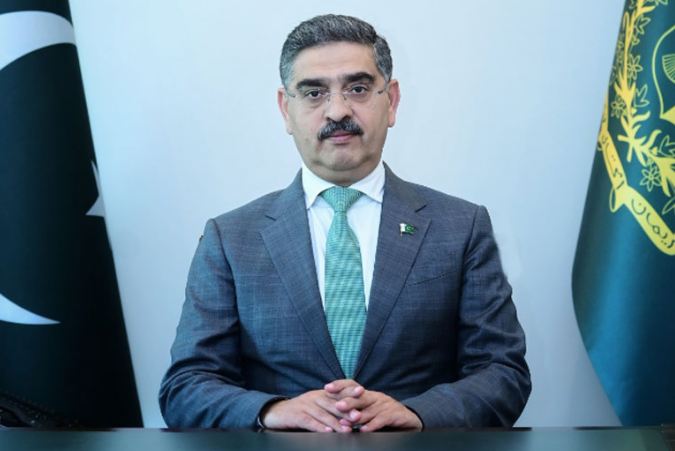ISLAMABAD, Caretaker Prime Minister Anwaar-ul-Haq Kakar has expressed the country’s commitment to jointly building the China-Pakistan Economic Corridor (CPEC), saying the project has transformed the socio-economic landscape of Pakistan.
PM Kakar, who is set to participate in the Third Belt and Road Forum for International Cooperation in China on October 17-18 which marks the completion of a decade of the Belt and Road Initiative (BRI), said Pakistan endorses China’s vision of CPEC as a corridor of growth.
As the flagship project of the BRI, he said, CPEC marks a milestone in Pakistan-China relations by placing “economic cooperation and connectivity at the very center of the bilateral agenda”, making the two countries more interconnected.
“We fully endorse China’s proposal of developing the CPEC as a corridor of growth, livelihood, innovation, greenness, and openness – representing our two countries’ preference for a human-centric approach, inclusivity, and green development,” he said.
The prime minister said Pakistan and China as close friends, strategic partners, and iron brothers, are moving forward toward a destiny of shared future.
“The tale of China-Pakistan relations is not an ordinary one. It is an account of brotherhood, friendship, and trust, the foundations of which were laid more than 70 years ago,” he said.
Kakar said the timeless Pakistan-China partnership and deep-rooted friendship serve the interests of both countries and remain the cornerstone of Pakistan’s foreign policy.
He said Pakistan and its people, with absolute confidence, value the relationship greatly, and proudly call China as best friend. It is heart-warming that in China, the term “Ba Tie” meaning Iron Brother is reserved only for Pakistan, he added.
He termed the historical evolution of the Pakistan-China relationship amid the evolving regional and global developments as an “exemplary model of inter-state relationship”.
“The unique relationship of more than seven decades, underpinned by the rationale of strong political support, mutual trust, and all-round practical cooperation, has matured into a strong strategic partnership,” he said.
The prime minister paid tribute to the vision and statesmanship of President Xi Jinping who propounded the vision of building a global community of shared future, a new idea for global governance and cooperation, and a fresh approach toward international exchanges, thus drawing up a new blueprint for a better interconnected world.
He quoted Zhou Enlai, China’s first premier, who once said that “the friendly interactions between the peoples of China and Pakistan date back to the dawn of history” and mentioned in this regard the historic links such as the Silk Road and Gandhara civilization.
The prime minister said Pakistan was a pioneering member of the Group of Friends of the Global Development Initiative (GDI) proposed by President Xi Jinping and played an active role in giving it a more concrete shape.
“As the first one to ink a Memorandum of Understanding on the GDI, Pakistan stands ready to benefit from this cooperation in areas of education, healthcare, climate change, and poverty reduction,” he said.
He said Pakistan’s foreign policy objectives were based on “peace within and peace without,” as outlined by the founding father Muhammad Ali Jinnah.
Kakar said in a world marred by multiple challenges like conflicts, economic recessions, food insecurity, social inequalities, and climate change, the salience of the Pakistan-China all-weather strategic cooperative partnership assumed great importance.
He expressed gratitude to China for its support for Pakistan’s sovereignty, territorial integrity, and economic security, and its principled support on the issue of Kashmir.
Pakistan, he said, was committed to the one-China principle and extended its support to China on its core issues related to Taiwan, Hong Kong, Xizang (Tibet), Xinjiang, and the South China Sea.

















